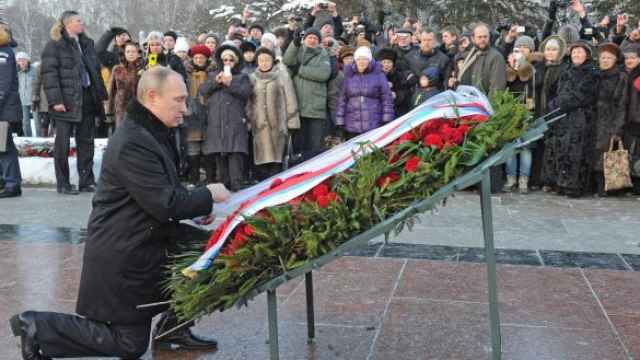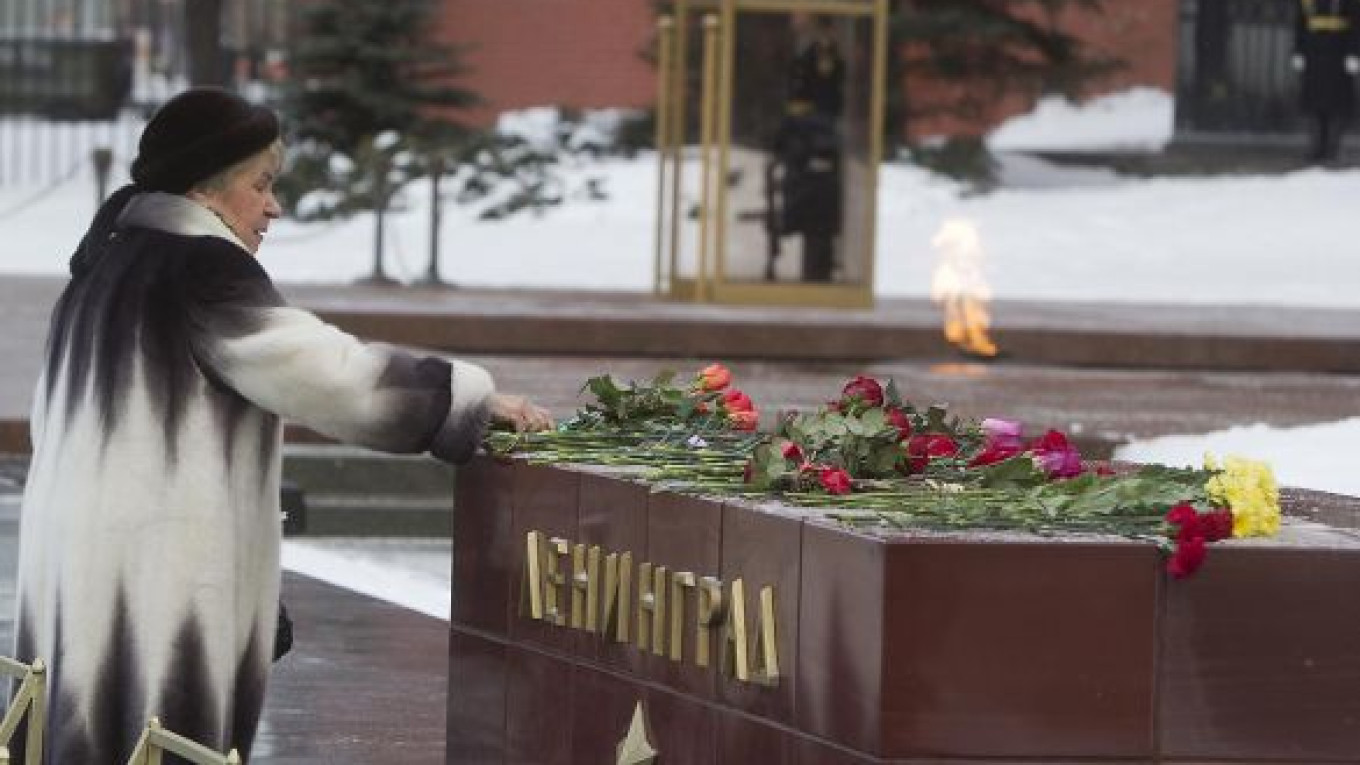President Vladimir Putin paid tribute to victims of the Siege of Leningrad on Monday in St. Petersburg and spoke to survivors who said that the name for the celebrations marking the end of the blockade should be changed.
Putin attended a ceremony at the Piskaryovskoye cemetery in St. Petersburg, which was called Leningrad during the Soviet era, on the 70th anniversary of the devastating World War II siege being lifted.
He laid a wreath at the Motherland monument and also honored his older brother, who died in childhood during the siege and is interred in a mass grave at the cemetery, the Kremlin said in a statement.
During a meeting with Putin on Monday, siege survivors complained that the name for the celebration — "the complete liberation of Leningrad from the Nazi blockade by Soviet troops" — completely neglects the role played by the city's people, Interfax reported.
Putin agreed, saying that the Red Army "without a doubt made a decisive contribution to the defense and eventual liberation of Leningrad," but that "without the civilian population … we would hardly have been able to achieve this victory."

President Vladimir Putin remembers the victims of the Leningrad Siege.
"Without those who worked on the erection of the defensive lines, without those who worked in the factories, without volunteers and units that were formed by the citizens of Leningrad, I know this from my own family history, without these people victory would have been impossible, this is obvious. And this name — it really dilutes some of this," the Putin said.
Putin, who was born in St. Petersburg, called for the city's legislative assembly to rename the anniversary and, if necessary, to elevate the proposal to federal level.
On Sept. 8, 1941, the German army cut Leningrad off from Russian lines.? The city's residents struggled for almost 900 days as Adolf Hitler's troops attempted to starve them into submission. On Jan. 18, 1943, the first ray of hope appeared, when the Red Army established a single supply line to the city. Still, the blockade was not fully lifted until Jan. 27, 1944, by which time about 750,000 civilians had died.
German lawmakers have honored the victims of the Nazi army's three-year siege of Leningrad as part of this year's Holocaust Remembrance Day.
Daniil Granin, a 95-year-old Russian survivor, recounted in a speech to the German Parliament on Monday how thousands of people died of starvation each day during the harsh winters in Leningrad, now St. Petersburg.
The siege began in September 1941, three months after Nazi Germany launched Operation Barbarossa against the Soviet Union. (AP)
Contact the author at m.bodner@imedia.ru
A Message from The Moscow Times:
Dear readers,
We are facing unprecedented challenges. Russia's Prosecutor General's Office has designated The Moscow Times as an "undesirable" organization, criminalizing our work and putting our staff at risk of prosecution. This follows our earlier unjust labeling as a "foreign agent."
These actions are direct attempts to silence independent journalism in Russia. The authorities claim our work "discredits the decisions of the Russian leadership." We see things differently: we strive to provide accurate, unbiased reporting on Russia.
We, the journalists of The Moscow Times, refuse to be silenced. But to continue our work, we need your help.
Your support, no matter how small, makes a world of difference. If you can, please support us monthly starting from just $2. It's quick to set up, and every contribution makes a significant impact.
By supporting The Moscow Times, you're defending open, independent journalism in the face of repression. Thank you for standing with us.
Remind me later.


